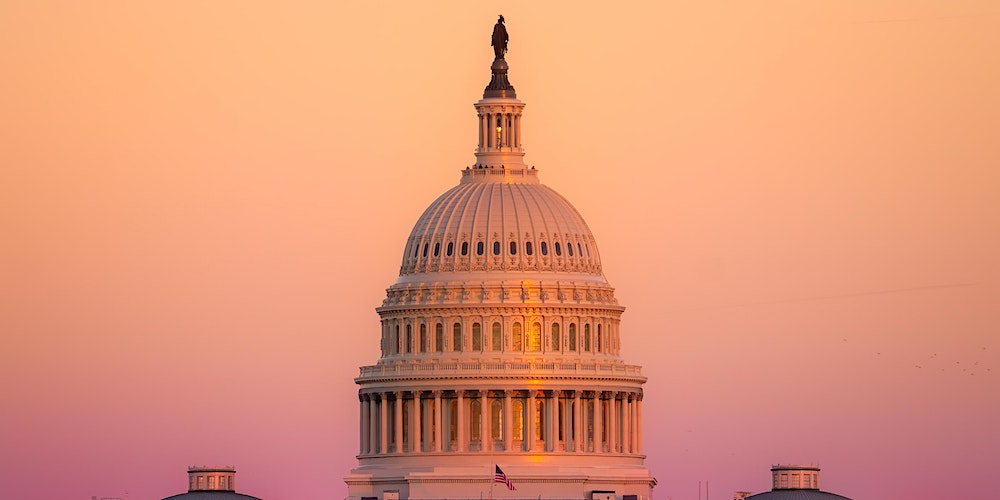
Five Big Questions (and Zero Predictions) for the U.S. State Privacy Landscape in 2024
Entering 2024, the United States now stands alone as the sole G20 nation without a comprehensive, national framework governing the collection and use of personal data. With bipartisan efforts to enact federal privacy legislation once again languishing in Congress, state-level activity on privacy dramatically accelerated in 2023. As the dust from this year settles, we […]

14th Annual Privacy Papers for Policymakers
FPF is excited to announce the 14th Annual Privacy Papers for Policymakers winners and in-person award ceremony! The award recognizes leading privacy scholarship that is relevant to policymakers in the U.S. Congress, at U.S. federal agencies, and international data protection authorities. Washington, D.C. – U.S. Capitol Visitor’s Center, Room SVC- 201-00

The PrivaSeer Project in 2023: Access to 1.4 million privacy policies in one searchable body of documents
In the summer of 2021, FPF announced our participation in a collaborative project with researchers from the Pennsylvania State University and the University of Michigan to develop and build a searchable database of privacy policies and other privacy-related documents, with the support of the National Science Foundation. This project, PrivaSeer, has since become an evolving, […]

A Blueprint for the Future: White House and States Issue Guidelines on AI and Generative AI
Since July 2023, eight U.S. states (California, Kansas, New Jersey, Oklahoma, Oregon, Pennsylvania, Virginia, and Wisconsin) and the White House have published executive orders (EOs) to support the responsible and ethical use of artificial intelligence (AI) systems, including generative AI. In response to the evolving AI landscape, these directives signal a growing recognition of the […]

Theodore Christakis

FPF and The Dialogue Release Collaboration on a Catalog of Measures for “Verifiably safe” Processing of Children’s Personal Data under India’s DPDPA 2023
Today, the Future of Privacy Forum (FPF) and The Dialogue released a Brief containing a Catalog of Measures for “Verifiably Safe” Processing of Children’s Personal Data Under India’s Digital Personal Data Protection Act (DPDPA) 2023. When India’s DPDPA passed in August, it created heightened protections for the processing of personal data of children up to […]

ICYMI: FPF Webinar Discussed The Current State of Kids’ and Teens’ Privacy
Privacy by design for kids and teens has expanded across the globe. As policymakers, advocates, and companies grapple with the ever-changing landscape of youth privacy regulation, the Future of Privacy Forum recently hosted a webinar discussing the current state of kids’ and teens’ privacy policy. The webinar explored the current frameworks that are influential worldwide, […]

FPF and OneTrust Release Collaboration on Conformity Assessments under the proposed EU AI Act: A Step-by-Step Guide & Infographic
Today, the Future of Privacy Forum (FPF) and OneTrust released a collaboration on Conformity Assessments under the proposed EU AI Act: A Step-by-Step Guide and accompanying Infographic. Conformity Assessments are a key and overarching accountability tool introduced in the proposed EU Artificial Intelligence Act (EU AIA or AIA) for high-risk AI systems. Conformity Assessments are […]

FPF Submits Comments with the National Telecommunications and Information Administration (NTIA) on Kids Online Health and Safety
On November 15, the Future of Privacy Forum filed comments with the National Telecommunications and Information Administration (NTIA) in response to their request for comment on Kids Online Health and Safety as part of the Biden-Harris Administration’s Interagency Task Force on Kids Online Health & Safety. Read the comments here. Young people increasingly engage with […]

FPF x NASSCOM Webinar Series
Future of Privacy Forum (FPF) and NASSCOM, India’s largest industry association for the IT-BPM sector, are co-hosting two webinars on the consent regime under India’s new Digital Personal Data Protection Act of 2023 (DPDPA). A key design feature of the DPDPA is its consent-centric approach. The aim of these webinars is to bring together views […]
